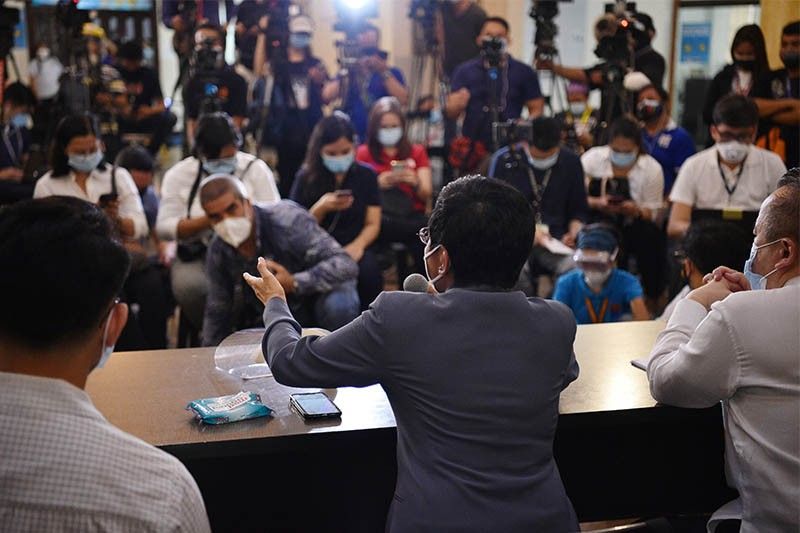CenterLaw calls for repeal of cyber libel

MANILA, Philippines — Citing its adverse effect on press freedom and free expression, the Center for International Law (CenterLaw) called for the repeal of cyber libel after a journalist was convicted of the crime.
CenterLaw on Thursday expressed grave concern on the conviction of Rappler CEO Maria Ressa and former researched Reynaldo Santos Jr. over an article published before the Cybercrime Prevention Act was instituted.
"CenterLaw reiterates its long-standing position that the Philippine Congress should repeal our criminal libel laws, consistent with the UN Human Rights Committee 16 October 2011 View in Adonis vs. Republic of the Philippines that the penalty of imprisonment for libel is incompatible with Philippine treaty obligations to protect freedom of expression under Article 19 of the International Covenant on Civil and Political Rights (ICCPR)," the lawyers’ group said in a statement.
Ressa and Santos were found guilty of violation Section 4(c)(4) of the Cybercrime Prevention Act of 2012 and were sentenced to the indeterminate penalty of imprisonment ranging from six months and one day of prision correccional as minimum to six years of prision correccional as maximum, although were allowed to post bail.
They were also ordered to pay private complainant Wilfredo Keng to pay jointly P200,000 for moral damages and P200,000 for exemplary damages.
CenterLaw also expressed concern on the “drastic” imposition of prescriptive period—or the maximum period set by law to take a legal action against an act—of up to 12 years.
The Manila court ruled that when the news site updated the assailed article on May 2014, it counts as a “republication” and put it under the coverage of the 2012 law. It also held that the prescription—or the period for a legal action against an act—of cyber libel is up to 12 years.
By holding the legal action may be pursued on a 12-year-old article published online, the court made "journalism in the Philippines a most burdernsome profession” since journalists would have the prescriptive period "hanging over their heads in their pursuit of truth and accountability."
"This clearly presents an unprecedented chilling effect on press freedom and on free expression in particular. This restrictive interpretation by the trial court affects not just the free exercise of journalism in the country but the free discussion of issues of the public good among citizens," CenterLaw also said.
Disini vs The Secretary of Justice
The lawyers also argued that under Article 90 of the Revised Penal Code, as amended by Republic Act A No. 4661, the prescriptive period for libel is specified as one year.
No less than the SC held in the landmark Disini vs The Secretary of Justice case held that cyber libel is not a new crime since the Revised Penal Code, under libel, punishes it, CenterLaw also said.
In the said landmark ruling, the SC struck down the provision that punishes "aiding and abetting’ libel on the cyberspace” in the anti-cybercrime law as unconstitutional. The tribunal held that the terms “’aiding and abetting’ constitute a braod sweep that generates chilling effect on those who express themselves through cyberspace posts, comments and other messages.”
The SC pointed out that while “aiding or abetting” has definitions in existing laws, there are many actors to consider in the online space such as the poster, service provider, commenters, or sharers of the link.
CenterLaw stressed that SC had previously held: “Unless the legislature crafts a cyber libel law that takes into account its unique circumstances and culture, such law will tend to create a chilling effect on the millions that use this new medium of communication in violation of their constitutionally-guaranteed right to freedom of expression.”
- Latest
- Trending




























